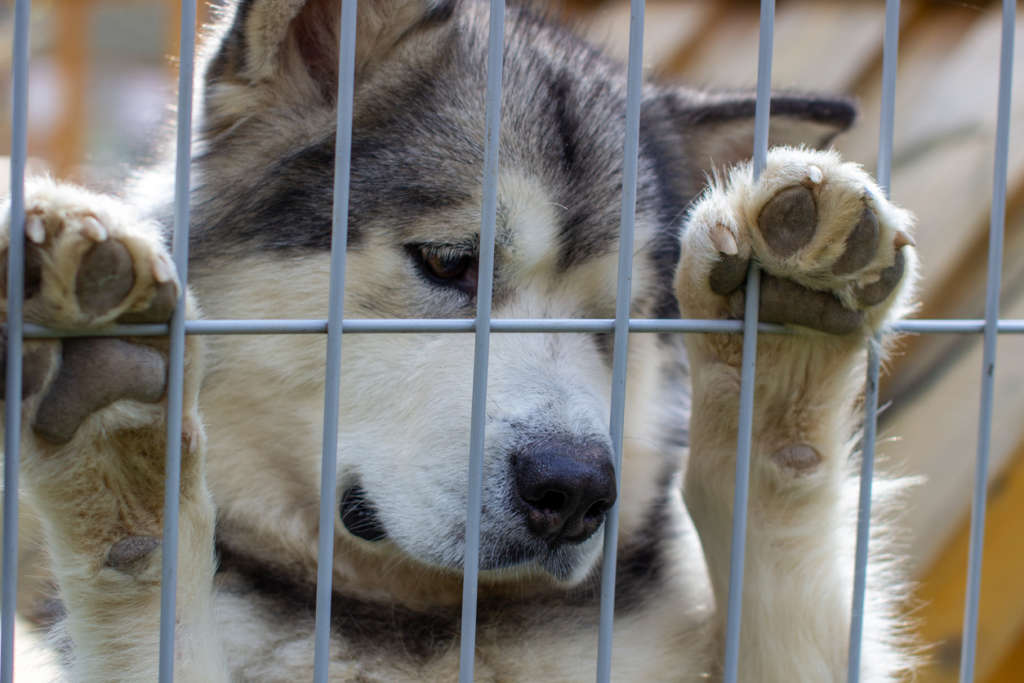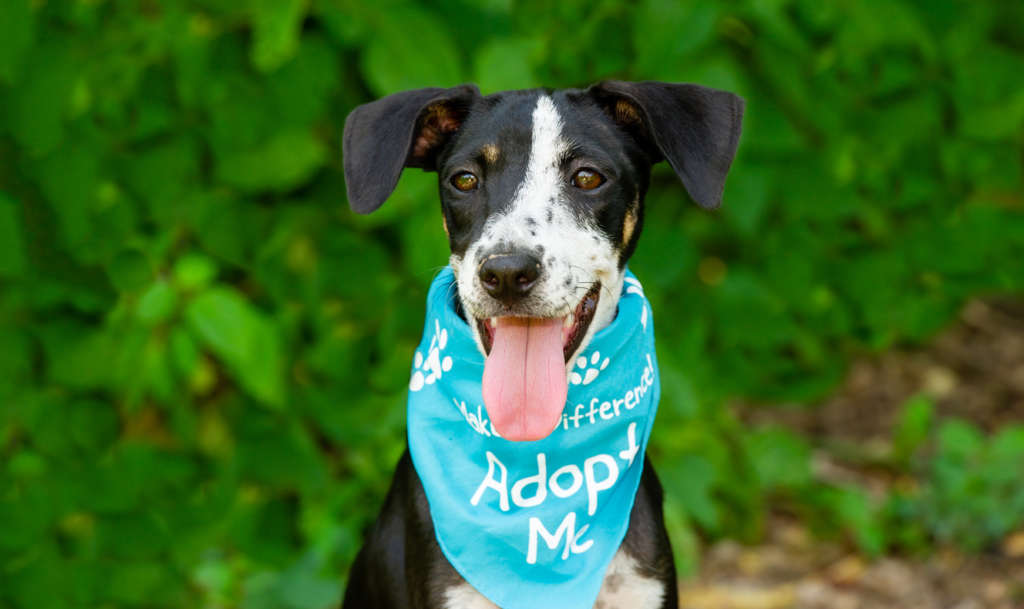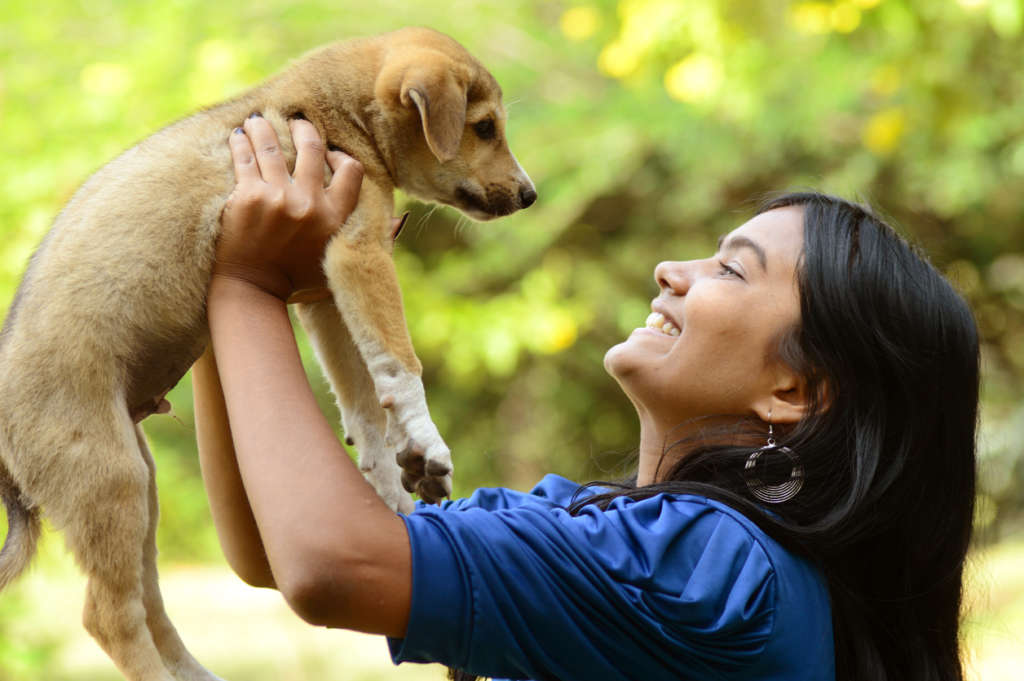There are so many wonderful reasons to bring a new dog into your home, but the decision should never be taken lightly. It’s important to research the traits and characteristics of a dog that best fit your family’s lifestyle. Unfortunately, many people in the market for a new best friend have misconceptions about adopting that stop them from even considering a shelter, and the reasons they cite may surprise you.
According to the ASPCA, about 3.1 million dogs end up in U.S. shelters each year1. Roughly 390k are euthanized, though this number is significantly lower compared to the previous decade1. The American Pet Products Association (APPA) estimates that there are 78 million dogs living in homes across the country. As a result of a multiple response question provided by APPA, we can conclude that out of all of these acquired dogs, 23% are adopted from shelters and rescues, and 34% come from breeders2. There is certainly room for improvement.


6 Misconceptions About Adopting & Their Counterpoints
1. “We’re looking for a particular breed.”
Many adopters begin the search with a specific breed in mind, whether it’s a purebred pup or a “designer” hybrid. Some potential pup parents automatically dismiss shelter adoptions out of hand. They may claim that their shelter would not have the dog they‘re looking for, or that they want a “purebred.”
Counterpoint: Rescue groups across the country work with all kinds of specific breeds. There are a number of online adoption resources (Petfinder, for example) that allow you to filter available dogs by breed. The AKC even has a breed-specific rescue network to help you find a location near you.


2. “Adopting is too expensive.”
Families may compare prices for dogs at pet stores and from breeders, but will often overlook the local shelter. (Please do not ever purchase your dog from a pet store! Far too often, pet stores source from puppy mills and irresponsible breeders. Be responsible.) Additionally, remember that dogs are a long-term financial commitment, not just their price tag or adoption fee.
Counterpoint: Adopting a dog is usually far less expensive than purchasing from breeders. Vets will usually spay or neuter a dog prior to adoption if they’re old enough, as well as administer initial vaccines, dewormer, and other necessary care.
This cuts down on the costs of altering the dogs post-adoption and prevents further unwanted pets. Some individuals buy their dogs from breeders and neglect to have them spayed or neutered. This becomes an issue if it leads to accidental litters, hormonally-driven behaviors like aggression and humping, infection of the reproduction organs, and more.
Related Article: Spaying Or Neutering Your Dog: Benefits, Risks, & Everything Else Your Vet Wants You To Know


3. “Shelter dogs aren’t as well-behaved.”
Some dog parents want the experience of potty training and obedience training for their dog… and others don’t. Families may pass up the chance to adopt a pup and go to a breeder because they believe “you never know what you’ll get” with a shelter dog—one of the most common adopion misconceptions about adopting by far.
Counterpoint: First off, a great many dogs enter the shelter through no fault of their own. They are perfectly well-suited to living in a home with people, and possibly other pets. Most even arrive already potty trained and have at least the obedience basics down.
Even still, adoptable dogs often receive an examination and treatment by trained medical and behavioral experts beforehand. Shelter professionals will have insight into the dogs’ health history, personality and, in some cases, their history. This means that a family looking to adopt a dog will know more about their potential new family member from a shelter than the information they can get from pet stores or even some breeders.


4. “We’ve always gotten our dogs from breeders.”
Social and economical factors affect people’s choices all the time, and the broader, philosophical issues may not even occur to them. The tradition of finding a dog at a pet store or breeder still remains ingrained in some people.
Counterpoint: Remember, shelters euthanize nearly 400k adoptable dogs each year1. When you adopt, you save the life of the dog you bring home, and the one who takes its place in the shelter. Not to mention the busy staff and volunteers who dedicate their time to finding each animal the best home possible. They are there to help you find the absolute best match! And often, they have resources to lend a hand after adoption, like recommendations for veterinarians and group training classes.


5. “Shelters aren’t clean and shelter dogs aren’t healthy.”
Despite the extensive documentation of the connection between cruel, inhumane puppy mills and pet stores/breeders, many people will connect those providers of dogs with clean and more hygienic environments. Many still have the idea that shelters are dirtier, less healthy environments.
Counterpoint: While there are always exceptions, the majority of reputable shelters and rescues provide clean, well-maintained areas, and volunteers work to keep it that way. They also provide routine vet care to ensure every dog available for adoption is healthy before they go home. On the other hand, it’s not uncommon for pet store-sourced dogs to be poorly cared for prior to purchase. They sometimes suffer from health issues due to inbreeding or lack of vet care.


6. “It’s too difficult to adopt.”
For some, just the thought of adopting a dog from a shelter can steer them toward a pet store or someone’s backyard. Adopting a dog conjures images of a labyrinth of paperwork and a process far too convoluted to bother with—so much so that many simply don’t.
Counterpoint: While the adoption process tends to vary from person to person and group to group, a shelter’s ultimate goal is to place as many dogs as possible in happy, loving homes. Shelters can differ in the time needed to complete the process. In an open adoption, a shelter representative will often interview the potential pet parent and allow them to take their pup home that same day. In a closed adoption, the shelter may require a background check or home inspection.
These procedures are in place to ensure that a potential adoptive family finds the right dog. Every step along the way involves open communication! Pet adoption groups like Scotia, NY’s Animal Protective Foundation exist to make sure each animal finds the home they deserve, and that each family finds the furry family member that will thrive with them.


Sources
1ASPCA. (n.d.). Pet statistics. ASPCA. Retrieved April 7, 2022, from https://www.aspca.org/helping-people-pets/shelter-intake-and-surrender/pet-statistics
2American Pet Products Association. (n.d.). American Pet Products Association (APPA). American Pet Products Association. Retrieved April 7, 2022, from https://www.americanpetproducts.org/






